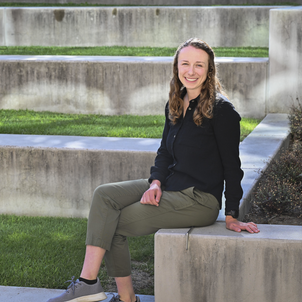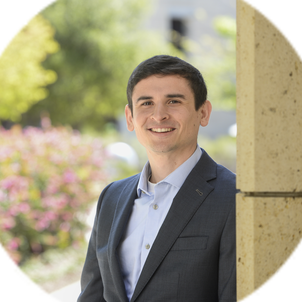My family fled Somalia and ended up in a refugee camp in Mombasa, Kenya, where we spent four years. I was born there, and two years later we were granted asylum and came to the States. I was 8 years old when 9/11 happened, and I identify as Muslim, so I had kids calling me a terrorist at a very young age, and for years I struggled with whether I could share my identity with people or whether I had to keep it to myself. I’m also one of 11 siblings. It wasn’t until I applied for student aid that I realized I was living in poverty, because my parents had made sure we always had what we needed. I never felt poor because I always had love.
My family initially pushed me to become a doctor. But I loved math, and by middle school I was telling my parents that there was this thing called engineering. What I’ve really always wanted to do is to help as many people as I can, so I started looking around, and what I saw was a difference between the neighborhood in Portland, Oregon where I was growing up and other neighborhoods, in terms of the roads and the lights and the crosswalks; even the homes looked different. I wondered why there was a difference in this infrastructure, when it was supposed to be a public service that everyone contributed to. That’s when I decided to become a civil engineer, to see if I could design cities and build things that people use every single day, but in a way that eliminated those disparities. It was my driving force.
Today I try to bridge the ideas of social equity and environmental justice with civil infrastructure systems. I’ve done a lot of work in the water sector, and right now I’m working with community partners thinking about how we can increase access to water in places where people don’t have it, can’t afford it, or have water that smells or tastes bad. The recent water treatment plant failure in Jackson, Mississippi, is an example of what can happen when residents complain for a long time, but their complaints are ignored, resulting in the failure of an entire water system. We’re trying to provide communities in similar situations with the data and analysis they need to successfully advocate for themselves. It’s a matter of giving voice to the voiceless, because I know what it’s like to be voiceless.
Something else that’s important to me is working to diversify academia. I want to be able to look at my classrooms and see not just one or two people who look like me, but a representation of what communities in this country look like. It’s not something I can accomplish on my own, but I can have an impact on it by working in recruitment, being thoughtful about the type of courses I teach and who those attract, and providing a voice when it comes to admissions. I also work with high school seniors helping to review college and scholarship applications, and I hold workshops and seminars aimed at African American youth back home in Portland every year. All these little things really add up.
When I’m on my deathbed and someone asks me if I had a fulfilling life, I want to try and count how many people I’ve been able to help and find that the number is uncountable. That’s why I went into academia, because I feel it’s where I can have the greatest impact both on policy and on all the students who will walk though these doors and go on to improve the lives of so many others. It’s an amazing ripple effect.
Related spotlights

Christine Baker

Thomas Colburn

